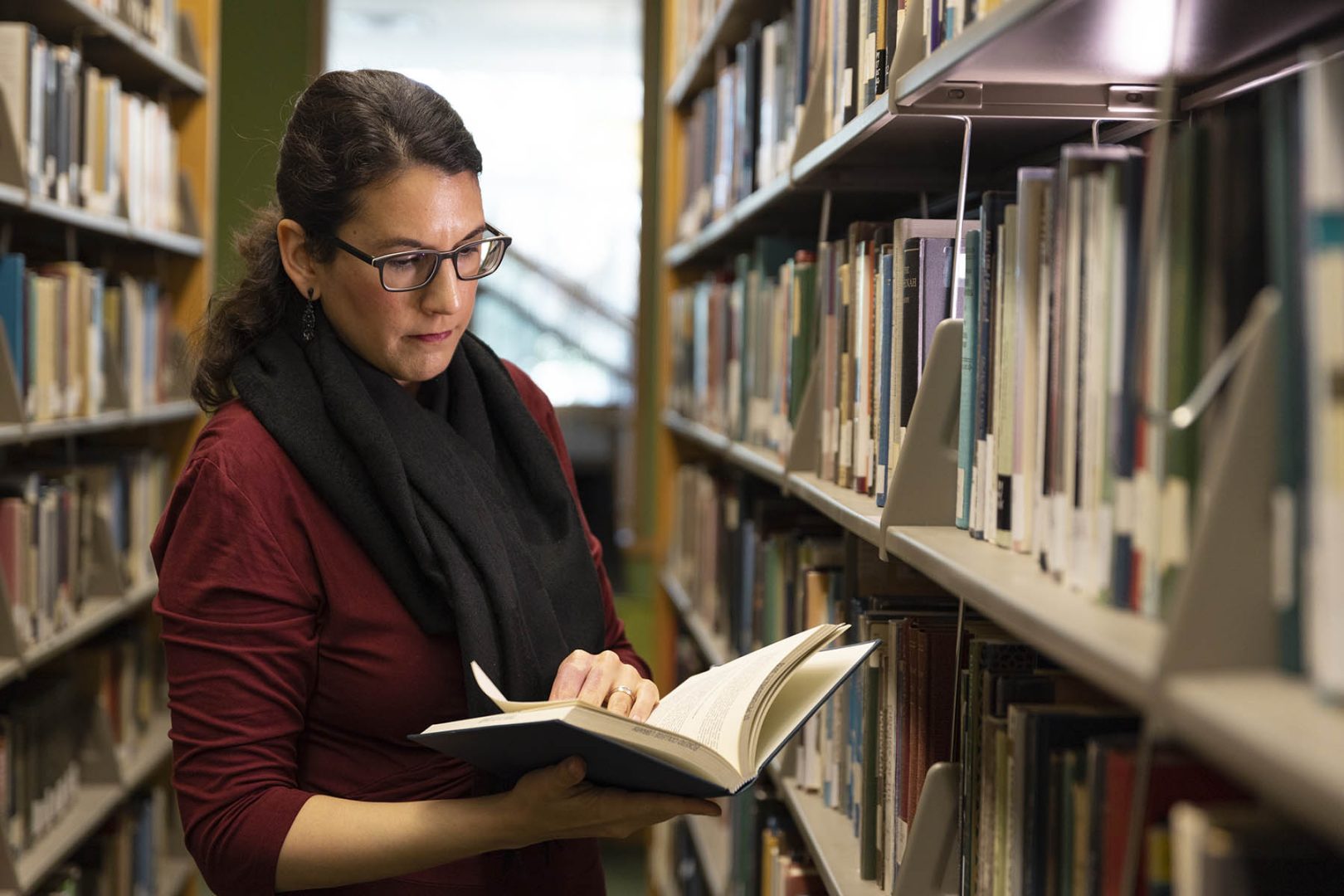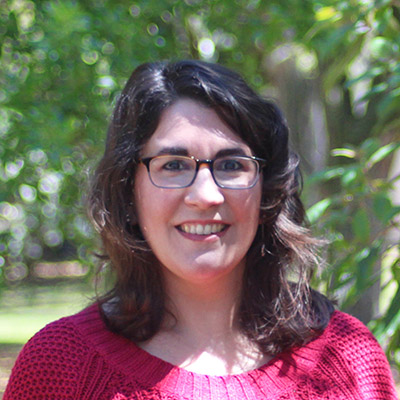Allison Quatrini, Ph.D., had known for several years about the plight of the roughly 11 million Uyghur people of the Xinjiang region in northwest China. Pronounced ˈwē-ˌgu̇rs, the Uyghurs are a minoritized group, predominantly Muslim, and are increasingly seen by the Chinese party-state as a threat.
In March of 2015, Quatrini, an assistant professor of political science at Eckerd College, traveled to the region to see for herself.
She timed her visit to coincide with the Navruz Festival, a celebration that marks the vernal equinox and serves as the start of the new year for Uyghurs and other Turkic ethnic groups. “On this holiday, people traditionally tidy up their homes, buy new clothes, cook special meals,” Quatrini explains. “But when I attended the holiday, I didn’t see much of that. During the variety show itself, I saw portraits of Chairman Mao, a kung fu demonstration, and the yangge, a Chinese folk dance. Throughout my time there, I saw tanks rolling down the streets and military exercises in public parks. I saw police on many street corners, Uyghurs having their phones taken from them, and metal detectors in bazaars and shopping malls. I thought that this must be what martial law is like.
“Very little had to do with celebrating the first day of spring, which is what they were supposed to be doing. The whole point of the holiday, as interpreted by the local ethnic affairs commission, is to serve as a reminder that ‘Uyghurs are Chinese.’”
Quatrini began a research paper based on her visit. And now, thanks to a short-term research publication grant from the American Association of University Women, she’ll be able to finish her work. One of the world’s oldest leading supporters of graduate women’s education, the AAUW has provided more than $135 million in fellowships, grants and awards to 13,000 women from 150 countries since its founding in 1881. “We’re proud to support the work of these outstanding scholars and community leaders,” says Gloria L. Blackwell, AAUW’s chief executive officer.
Quatrini’s research focuses on ethnic politics and nationalism in China, with an emphasis on how minoritized groups, particularly the Uyghurs, navigate their relationship with the Chinese party-state. Beginning in 2017, up to 1.8 million Turkic Muslims, many of whom are Uyghur, have been interned in reeducation camps in the Xinjiang Uyghur Autonomous Region, Quatrini has reported. “While imprisoned, they suffer bullying, brainwashing and beatings simply for practicing Islam, mild acts of dissent, and contact with Uyghurs living abroad.
“In addition to tearing apart families with detentions, the total surveillance of Uyghur people by the Chinese government, forced suppression of their culture, and recent reports suggesting widespread sexual assault in the internment camps,” Quatrini notes, “researcher Adrian Zenz has written a detailed analysis of measures to suppress the Uyghur birthrate.”
Quatrini says she incorporates her research into her classes. “For example, I have shown pictures from the festival, as well as other festivals I attended, to demonstrate the importance of symbolic politics.”
Why does the party-state consider the Uyghurs a threat? “I would say, on the whole, they’re actually not a threat,” Quatrini says. “I see this as becoming a self-fulfilling prophecy for the Chinese party-state. This is a region in western China that’s a conduit to the west … the crossroads of Asia. The party-state needs to keep this region a part of China and keep it stable. And I think some of the customs and traditions within Islam don’t mesh very well with Chinese society, like covering your hair in public. This is seen as not very Chinese.
“It’s important to be aware of this because this has happened before and is actually happening now in Russia with children being taken from Ukrainian families and being placed with Russian families,” she adds. “Another example is the Japanese internment camps in the U.S. during World War II.”
Ethnic minorities like the Uyghurs have advocates around the world, Quatrini says, including human rights groups in Washington, D.C., that lobby Congress. “This is fairly new. I’ve seen increased activism in the last 10–15 years. There are groups that are working to help them.”
Quatrini’s published work has appeared in Nationalities Papers, Qualitative and Multi-Methods Research, The Diplomat, Responsible Statecraft, and the Tampa Bay Times. She also has written for the Baker Institute for Public Policy at Rice University and the Rising Powers Project at the Sigur Center for Asian Studies at The George Washington University.














